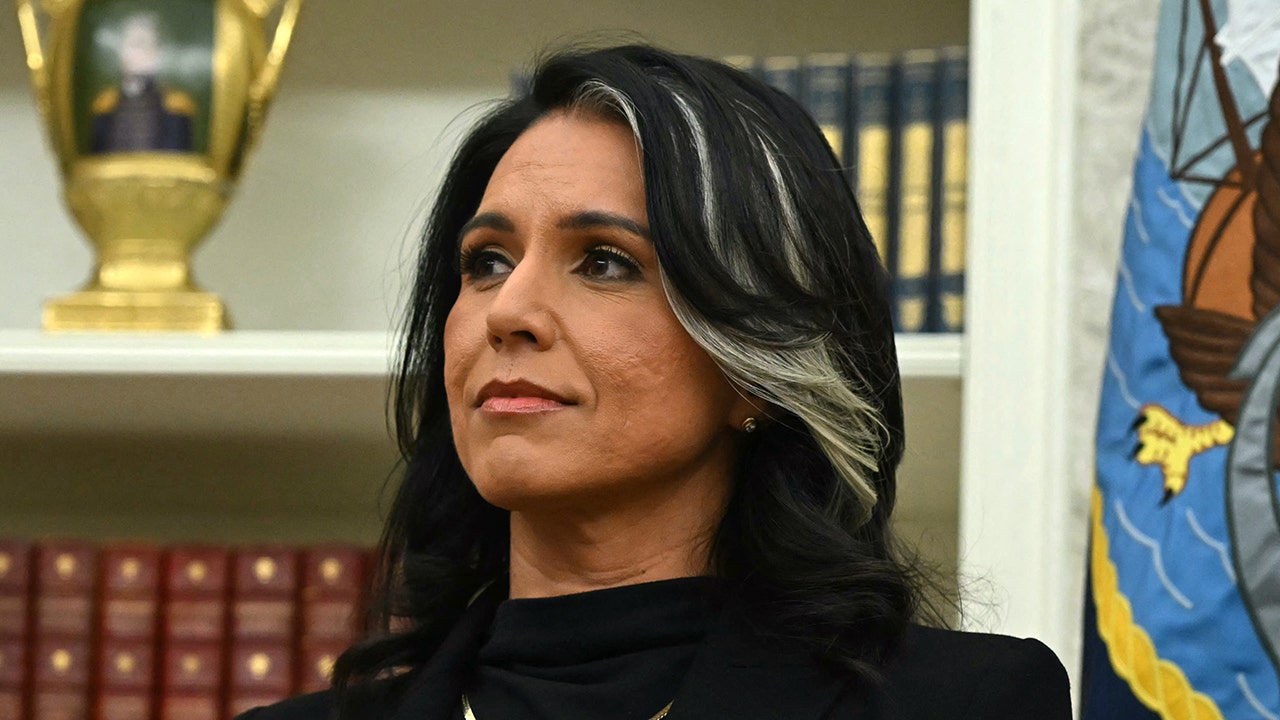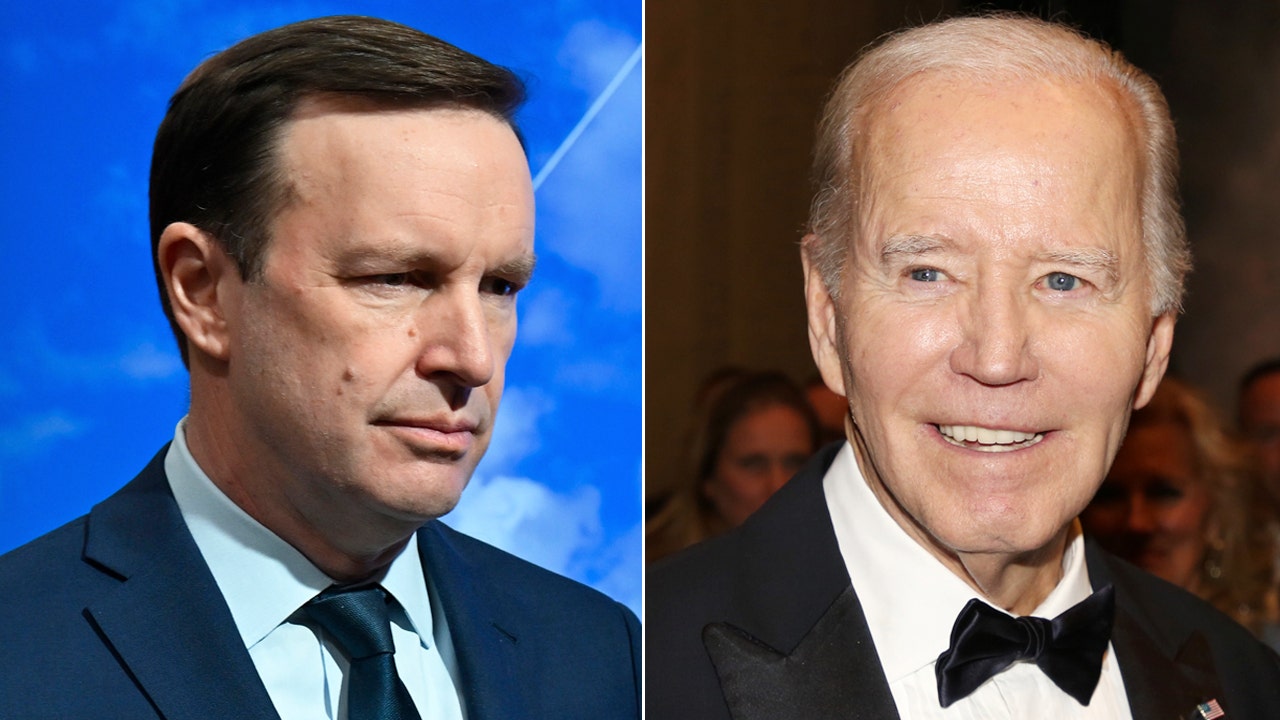World
What is the ‘Rome Process’, Meloni’s plan to curb irregular migration?
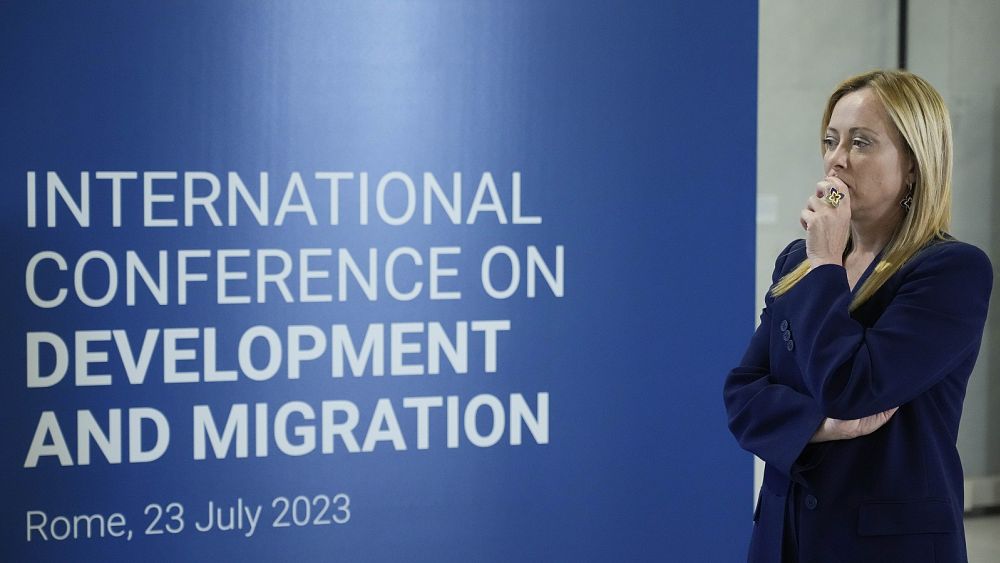
It’s the latest in a raft of European efforts to ‘externalise’ migrant controls by outsourcing them to third countries.
Italian Premier Giorgia Meloni is trying to depict her new agreement with Middle Eastern and African countries as crucial to deal with irregular migration — experts are dubious.
The ‘Rome Process’ agreed on Sunday aims to tackle the root causes of illegal migration — including conflict, economic hardship and climate change — and crack down on migrant smugglers. The twenty countries that signed up will also partner on clean energy and to improve employment perspectives in emerging economies.
It came after the EU signed a €105 million deal with Tunisia to stem the flow of irregular Mediterranean crossings and boost returns.
But experts warn externalisation is not a silver bullet for the EU’s migration woes.
“I don’t see the Rome Process as a major step, but rather as yet another initiative to address migration into Europe,” said Luigi Scazzieri, a senior research fellow at the Centre for European Reform.
“Europe is trying to attract more cooperation to stem migration flows and return migrants from countries of origin and transit. In turn, they are trying to extract more money and political attention from Europe,” he added.
One of many externalisation measures
The main objective of the new alliance is to tackle criminal networks that illegally smuggle migrants into Europe in dire conditions, contributing to a rising migrant death toll. Almost 2,000 people are estimated to have died attempting to cross the Mediterranean into Europe this year.
“It is our duty of course to take care of our states, but it is also our duty to take care of the fate of these people,” Giorgia Meloni said Sunday.
Migrant smuggling has become a widespread and lucrative criminal activity, with a recent surge seen in illegal groups operating in countries such as Tunisia and Libya, gateways into Europe via the Mediterranean route.
The conclusions of Sunday’s conference foresee new bilateral or multilateral agreements between countries to combat migrant smuggling, including transnational coordination to prosecute smugglers and new measures to track and freeze their illegal profits.
Opening safe, legal migration routes
But although irregular migration is a problem for the EU, the bloc faces another, more pervasive problem, for which migration provides a solution: labour shortages due to its ageing and declining populations.
The Rome Process aims to address that by fostering legal and safe pathways for migration.
“Meloni has changed tone on legal migration, aware of labour shortages in Italy. But she has not changed tone on illegal migration,” Scazzieri said.
“She is attempting to make a distinction between legal and illegal migration, hoping that her supporters will see the difference,” he added.
“I think her shift also reflects a recognition that she needs to offer third countries some legal migration routes if she wants them to co-operate more in terms of reducing illegal migration flows.”
Tunisia deal a blueprint
The EU is hoping its new memorandum of understanding with Tunisia to stem illegal migration into Europe can be used as a template for future bilateral partnerships, as Commission chief Ursula von der Leyen reiterated on Sunday.
Government representatives from Morocco and Egypt, countries rumoured to be next in line for a similar agreement, were present at the conference.
But this is stoking fears the EU is offloading its responsibilities to third countries through such deals.
“This agreement joins a plethora of agreements, initiatives and processes initiated in the EU to manage the external dimension of migration,” according to Dr. Eleonora Milazzo, Joint Research Fellow at the Egmont Institute and the European Policy Center.
“This while the prospects of reaching an agreement on managing the internal dimension of responsibility sharing remain meagre.”
The Tunisia agreement has received criticism from NGOs, humanitarian groups and EU lawmakers as an attempt to outsource migration control to African nations with a questionable human rights record. Tunisian President Kais Saied has previously made racist remarks towards sub-Saharan migrants, and there is mounting evidence Tunisia has been pushing back migrants into the desert on the border with Libya and Algeria, leaving them with no food or water.
“There is a substantial concern that cooperation processes like the one launched in Rome turn a blind eye on the poor human rights track record of many partner countries, leading to more deadly irregular journeys and not promoting safe pathways,” Dr Milazzo said.
Mobilising investments
Details on how the new alliance will be funded have not yet been agreed upon, but members of leading financial institutions including the International Monetary Fund, the Islamic Development Bank and the World Bank were present at negotiations.
A donors’ conference will follow where member nations will agree on a common fund to finance projects. Mohamed bin Zayed Al Nahyan, President of the United Arab Emirates, has already committed $100 million (€90.2 million) to the process.
Italy is expected to unveil the ‘Mattei plan’ for cooperation with Africa in October, focused also on cooperation on energy and curbing migrant flows. When asked how the Rome Process fits in with the Mattei plan, Italian foreign minister Antonio Tajani explained the need for a financing plan that extends to the EU, the Gulf countries, and perhaps Turkey and the USA. “Otherwise you don’t go far,” he explained.
During the conference, Tunisia’s President Saied called for the establishment of a new global financial institution to tackle the root causes of migration. Discussions on a potential bailout from the International Monetary Fund (IMF) for Tunisia recently stalled as Saied refused to implement the reforms demanded by the IMF in return for the loan.
Climate change, in particular, is increasingly seen as a driver of forced displacement, the conclusions also highlight. Von der Leyen named clean energy as a priority area for investments with partner countries, with the EU’s Global Gateway initiative also making €300 billion available for infrastructure projects.
Participating countries also agreed to enhance cooperation with countries and people vulnerable to climate change, and ramp up investments in renewable energy and green, blue and circular economies.
An ‘alliance of equals’
Meloni acknowledged on Sunday that Europe has not always been a thoughtful partner and that “distrust” has sometimes made it difficult to solve common problems. But she stressed the conference was “dialogue between equals, based on mutual respect.”
“There cannot be a competitive or conflictual relationship between Europe and the wider Mediterranean because our interests are much more common than we might first think,” she said.
With the EU set to continue externalising its border controls to third countries, its partners “have an interest to extract greater benefits from the EU for their co-operation,” Scazzieri said. “So these relationships are inherently unstable and have to be regularly re-negotiated.”
For Meloni, this presents an opportunity.
“Meloni’s agenda appears to be about showing that Italy is actively seeking external allies and is proactive on the migration file. Team Europe and her visits to Tunisia have been prominent platforms to draw the EU’s attention on Italy’s role (and interests) in the Mediterranean,” said Dr Milazzo.
Concerns are however mounting over the potential misuse of EU funds through those new kinds of deals.
In some North African countries such as Libya, for example, criminal groups have already infiltrated the national coastguard. Earlier this month, a Libyan coastguard fired at humanitarian boats conducting rescue operations from an EU-funded boat.
Tunisia will host the next high-level event for the alliance, with countries not currently represented also invited to express interest in joining the alliance.

World
Gazans Once Escaped To Rafah. Now Israel Is Razing It.

Last year, a million Palestinians fled to Rafah, the southernmost city in the Gaza Strip, to escape the brunt of Israel’s bombardment in its war against Hamas. When Israeli forces later invaded Rafah itself, they flattened areas along the border with Egypt, but many neighborhoods were largely spared the worst of the war.
That is no longer the case.
The Israeli military has destroyed extensive parts of Rafah since it ended a cease-fire in March after talks with Hamas collapsed. In early May, after much of the destruction was already complete, Israel announced it would soon launch an “intensive” escalation of its campaign in Gaza. Over the previous two nights, strikes have killed dozens of Palestinians in Gaza, Palestinian officials said. On Tuesday, the Israeli military targeted Muhammad Sinwar, a top Hamas leader in Gaza, near a hospital in Khan Younis.
Satellite images analyzed by The New York Times show that the Israeli military has flattened large areas in and around the city of Rafah and built new military infrastructure in the last two months.
Israeli leaders say capturing more territory inside Gaza will pressure Hamas to surrender and release the remaining hostages that the group has held since it led a deadly attack on Israel on Oct. 7, 2023. Israel’s defense minister vowed that Israeli forces would “clear out” the areas and “prevent any threat,” including in Rafah.
Israeli security officials have previously said that tunnels between Egypt and Gaza have allowed Hamas to stock up on weaponry and other supplies.
In response to a question from The Times about the Israeli military’s operations in Rafah, the military said that it was part of an effort to secure operational control and conduct counterterrorism operations.
“We will replicate the model implemented in Rafah in other areas of the Strip as well,” said Effie Defrin, the Israeli military spokesperson, in a press briefing last week.
Demolishing Block by Block
Here is what the operation looks like on the ground: Four excavators could be seen in a video verified by The Times tearing down a row of buildings in Rafah’s Shaboura neighborhood in April. The video, first shared on an Israeli Telegram channel, was taken from an armored vehicle.
Satellite imagery shows that hundreds of buildings were destroyed in this neighborhood during the month of April, including on the block where the video was filmed.
Earlier this month, the Israeli security cabinet approved a new plan to call up tens of thousands of additional soldiers, to seize and hold territory in the embattled enclave, and to forcibly displace Palestinians to the south. But the satellite imagery shows the areas of the south where buildings are still standing are getting smaller and smaller.
Another video shows four buildings destroyed in a controlled demolition. The video, uploaded on an Israeli soldier’s Instagram account and shared by the Palestinian journalist Younis Tirawi on his X account, was filmed in northern Rafah, where much of the destruction has taken place. Satellite image shows that the demolition took place sometime in April.
New Construction
Israeli forces are not just clearing land. They are building on it.
One new road already stretches more than three miles from the Israeli border across Rafah into agricultural areas. It is protected by berms, trenches and several military outposts.
And other construction is moving at a rapid clip, the satellite images show.
Several new military outposts, often graded, paved and surrounded by defensive walls, have been built across southern Gaza in the past month. Soldiers have also commandeered buildings to use as bases, such as an under-construction hospital.
Israel calls the road it has constructed from the Israeli border the “Morag Corridor,” which Mr. Netanyahu said last month was intended to cut Rafah off from the rest of the enclave. The name is a reference to a Jewish settlement that existed in the area until Israel withdrew its soldiers and civilians from Gaza two decades ago.
What the construction might mean for the long term is uncertain. Some Israeli officials have agitated for Israel to rebuild Jewish settlements in the enclave, but Mr. Netanyahu has rebuffed the prospect for now.
Mr. Netanyahu said last week, after much of the construction and razing in Rafah was already in progress, that Israel was “on the eve of a forceful entry to Gaza.”
World
Rubio doubts 'anything productive' will happen in Ukraine peace talks without Trump, Putin
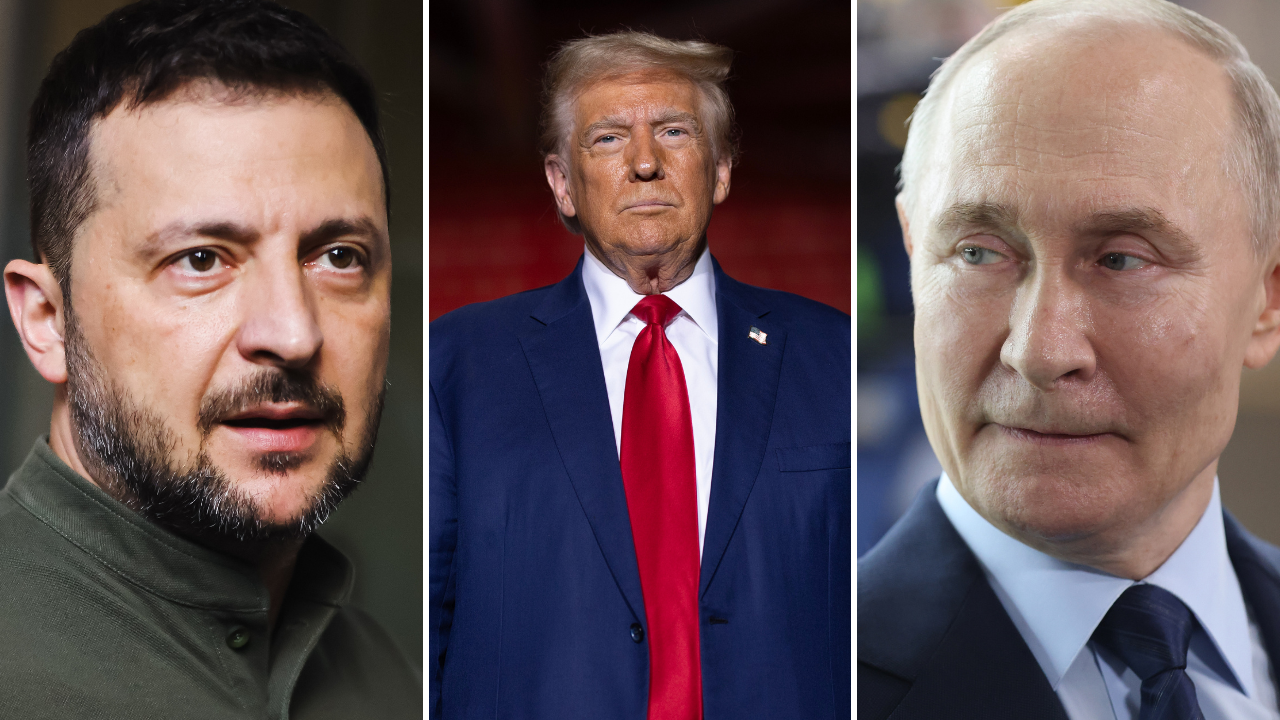
Secretary of State Macro Rubio cast a pessimistic tone ahead of talks in Turkey now set for Friday after both Russian President Vladimir Putin and President Donald Trump said they would not be in attendance.
The peace talks, which were supposed to happen on Thursday, got thrown into disarray after both Russian and Ukrainian delegations, including Ukrainian President Volodymyr Zelenskyy, landed in various cities in Turkey as confirmation arrived that not only would Putin not be engaging in the discussions, but neither would senior members from the Kremlin.
According to reports, frustration grew as the delegations and mediators spent much of the day questioning when, and even whether, they would meet on Thursday before the meeting was ultimately pushed to Friday.
President Donald Trump speaks to reporters aboard Air Force One en route from Riyadh, Saudi Arabia, to Doha, Qatar, Wednesday, May 14, 2025. (AP Photo/Alex Brandon)
TRUMP TO SKIP RUSSIA-UKRAINE PEACE TALKS, CALLS ZELENSKYY THE ‘GREATEST SALESMAN, MAYBE IN HISTORY’
“Frankly, at this point, I think it’s abundantly clear that the only way we’re going to have a breakthrough here is between President Trump and President Putin,” Rubio told reporters. “It’s going to require that level of engagement to have a breakthrough in this matter.
“I don’t think anything productive is actually going to happen from this point forward… until they engage in a very frank and direct conversation, which I know President Trump is willing to do,” he added.
The peace talks first came about after Putin suggested last week that Ukraine and Russia should engage in direct talks. Zelenskyy agreed and said those talks should be held by the leaders of the warring nations.
Trump sparked surprise earlier this week when he suggested he might travel to Turkey from the UAE if progress was made in the talks on Thursday, but it was never previously suggested that the U.S. president, who was set to be wrapping up a Middle East tour, would be present for the negotiations.
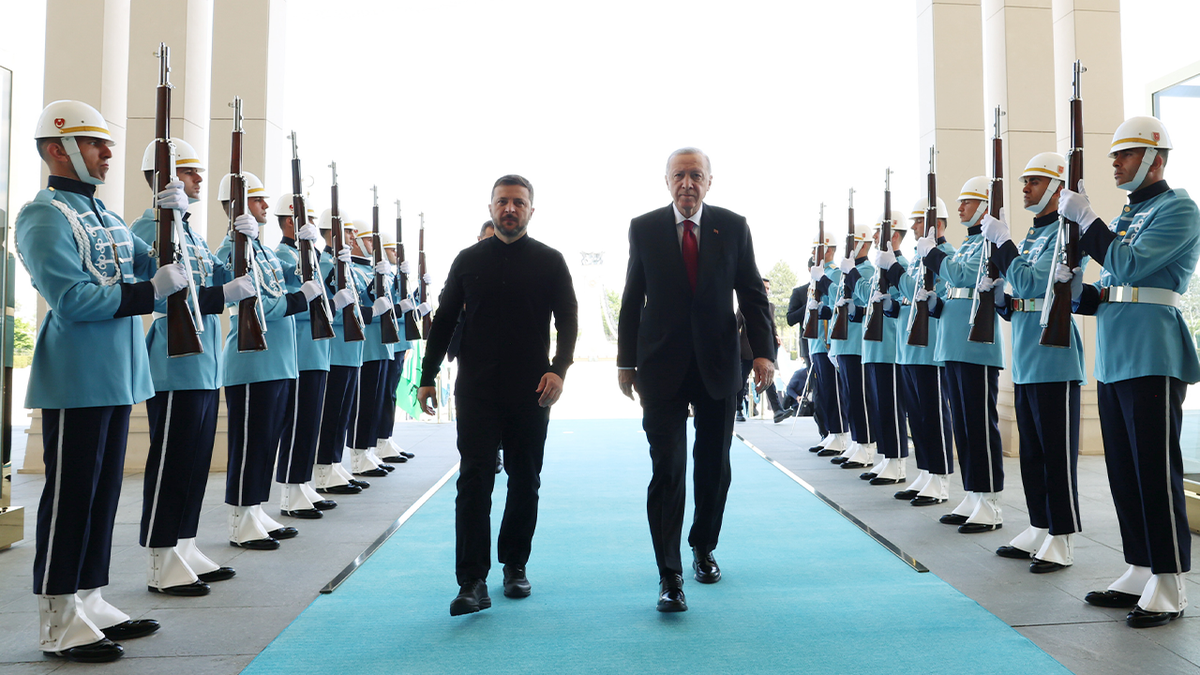
Turkish President Recep Tayyip Erdogan welcomes Ukrainian President Volodymyr Zelenskyy at the Presidential Complex in Ankara, Turkey, on May 15, 2025. (Turkish Presidency/Murat Kula/Handout/Anadolu via Getty Images)
PUTIN PROPOSES DIRECT PEACE TALKS WITH UKRAINE TO END WAR
The Kremlin on Thursday confirmed Putin was not going to participate in the peace talks.
Aboard Air Force One on Thursday, Trump suggested Putin did not attend because of a scheduling miscommunication and told reporters that there was no hope on any real progress in negotiations until he and Putin speak.
“Look, nothing’s going to happen until Putin and I get together. OK?” Trump said. “He was going to go, but he thought I was going to go. He wasn’t going if I wasn’t there.
“I don’t believe anything’s going to happen, whether you like it or not, until he and I get together,” he added.
Any future plans for Trump and Putin to talk remain unknown.
“What I can say with certainty is that the president’s… willing to stick with [this] as long as it takes to achieve peace,” Rubio said. “What we cannot do, however, is continue to fly all over the world and engage in meetings that are not going to be productive.
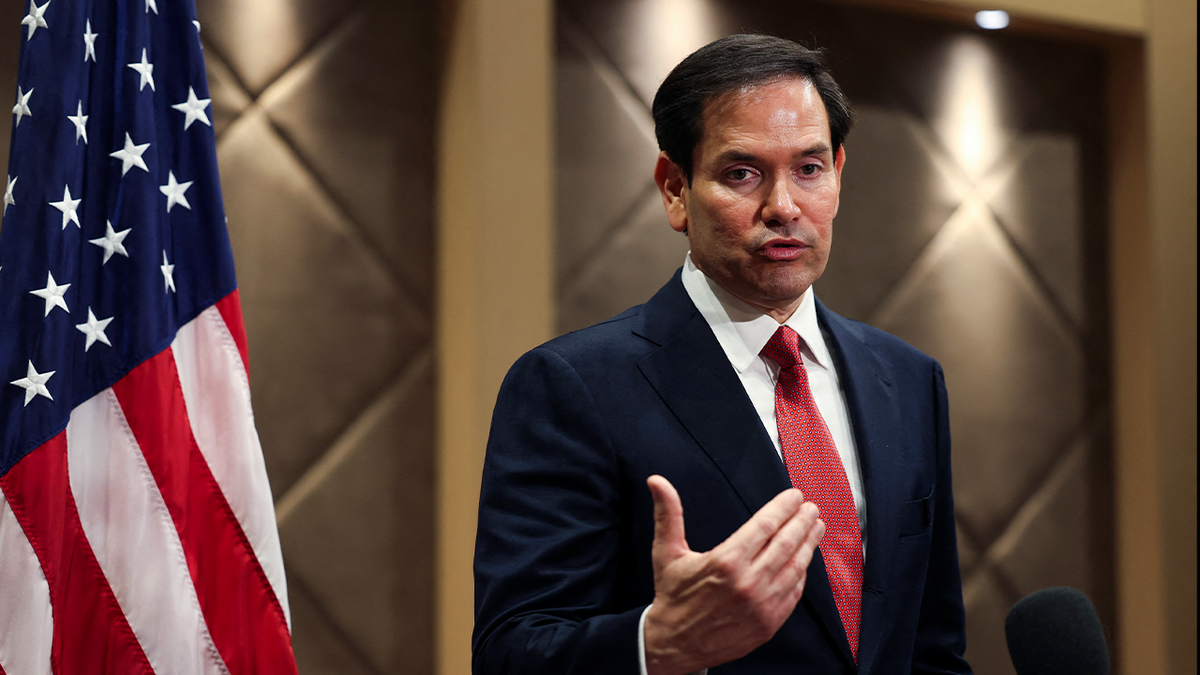
Secretary of State Marco Rubio speaks to the media following a meeting of NATO foreign ministers in Antalya, on May 15, 2025, ahead of potential peace talks between Ukraine and Russia in Turkey. (Umit Bektas/Pool/AFP via Getty Images)
“The only way we’re going to have a breakthrough here is with President Trump sitting face to face with President Putin and determining once and for all whether there’s a path to peace,” he added.
Zelenskyy did not hold back in expressing his frustration over what he said is proof that Putin’s “attitude is unserious.”
“No time of the meeting, no agenda, no high-level of delegation – this is personal disrespect to Erdoğan, to Trump,” Zelenskyy reportedly said at a Thursday news conference after meeting with Turkish President Recep Tayyip Erdoğan.
World
US judge dismisses case against migrants caught in new military zone

The magistrate ruled that apprehended migrants may not have been aware they were crossing into a military zone.
A United States judge in the southwestern state of New Mexico has dismissed trespassing charges against dozens of migrants apprehended in a military zone recently created under President Donald Trump.
The military zone is one of two so far that the Trump administration has created along the US-Mexico border, in order to deter undocumented migration into the country.
Entering a military zone can result in heightened criminal penalties. As many as 400 cases have since been filed in Las Cruces, New Mexico, alleging security violations and crimes like trespassing on restricted military property.
But starting late on Wednesday and continuing into Thursday, Chief US Magistrate Judge Gregory Wormuth began issuing dismissals at the request of the federal public defender’s office in Las Cruces.
Wormuth ruled that the government had failed to demonstrate that the migrants knew they were entering a military zone.
“The criminal complaint fails to establish probable cause to believe the defendant knew he/she was entering” the military zone, Wormuth wrote in his orders dismissing charges.
The ruling is the latest legal setback for the Trump administration, as it seeks to impose stricter restrictions and penalties for undocumented immigration. But the president’s broad use of executive power has drawn the ire of civil liberties groups, who argue that Trump is trampling constitutional safeguards.
Establishing new military zones has been part of Trump’s strategy to reduce the flow of migration into the US.
Normally, the crime of “improper entry by an alien” carries fines or a prison sentence of up to six months. But trespassing on a military zone comes with steeper penalties than a typical border crossing, and Defence Secretary Pete Hegseth has warned of a possible combined sentence of up to 10 years.
“You can be detained. You will be detained,” Hegseth warned migrants. “You will be interdicted by US troops and border patrol working together.”
On April 18, the first military zone was unveiled, called the “New Mexico National Defence Area”. It covered a stretch of about 274 kilometres — or 180 miles — along the border with Mexico, extending into land formerly held by the Department of the Interior.
Hegseth has said he would like to see more military zones set up along the border, and in early May, a second one was announced near El Paso, Texas. That strip was approximately 101km or 63 miles.
“Let me be clear: if you cross into the National Defense Area, you will be charged to the FULLEST extent of the law,” Hegseth wrote in a social media post.
Hegseth has previously stated that the military will continue to expand such zones until they have achieved “100 percent operational control” of the border.
Trump and his allies have frequently compared undocumented immigration to an “invasion”, and they have used that justification to invoke wartime laws like the Alien Enemies Act of 1798.
In a court brief on behalf of the Trump administration, US Attorney Ryan Ellison argued that the new military zones were a vital bulwark for national security. He also rejected the idea that innocent people might be caught in those areas.
“The New Mexico National Defense Area is a crucial installation necessary to strengthen the authority of servicemembers to help secure our borders and safeguard the country,” Ellison said.
He noted that the government had put up “restricted area” signs along the border. But the public defender’s office in New Mexico argued that the government had not done enough to make it sufficiently clear to migrants in the area that they were entering a military zone.
In the US, the public defenders noted that trespassing requires that the migrants were aware of the restriction and acted “in defiance of that regulation for some nefarious or bad purpose”.
Despite this week’s dismissals, the migrants involved still face less severe charges of crossing the border illegally.
-

 Austin, TX6 days ago
Austin, TX6 days agoBest Austin Salads – 15 Food Places For Good Greens!
-

 Technology1 week ago
Technology1 week agoBe careful what you read about an Elden Ring movie
-

 Technology1 week ago
Technology1 week agoNetflix is removing Black Mirror: Bandersnatch
-

 World1 week ago
World1 week agoThe Take: Can India and Pakistan avoid a fourth war over Kashmir?
-

 News1 week ago
News1 week agoReincarnated by A.I., Arizona Man Forgives His Killer at Sentencing
-

 Health1 week ago
Health1 week agoN.I.H. Bans New Funding From U.S. Scientists to Partners Abroad
-

 News1 week ago
News1 week agoWho is the new Pope Leo XIV and what are his views?
-

 News1 week ago
News1 week agoJefferson Griffin Concedes Defeat in N.C. Supreme Court Race
















